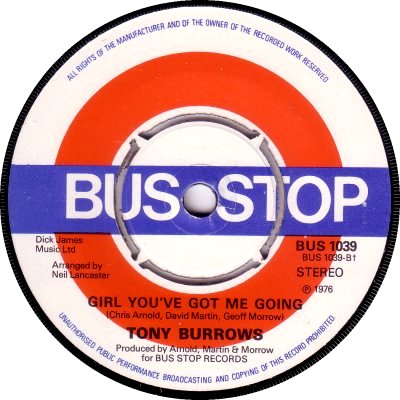
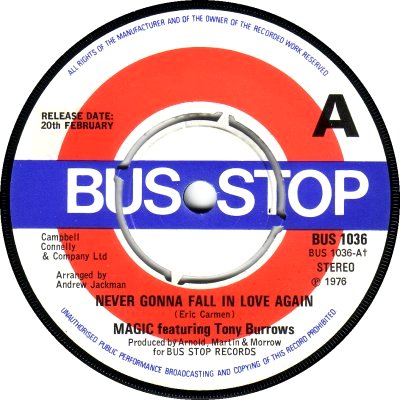
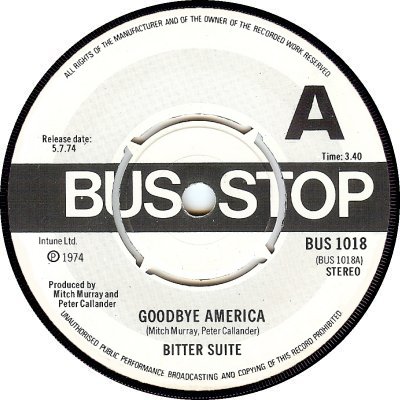
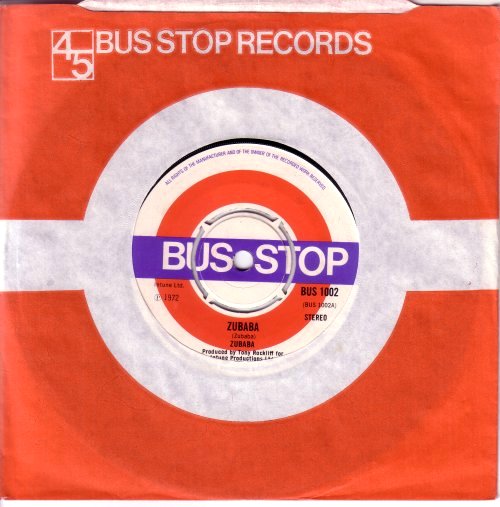
The label of the Intune music publishing company, owned and run by songwriters Mitch Murray and Peter Callender. 'Record Retailer' of the 25th of October 1969 reported that Murray and Callender were planning to form their own label 'next year', but the plans must have been shelved for some reason. It was not until the summer of 1972 that the successor to 'RR', 'Music Week', was able to announce the label's imminent arrival, by which time it had been given the name Bus Stop. The issue of the 22nd of July gave an intended starting date of the 1st of August, and added that the new label would be handled by EMI. There was a slight delay in the launch but the first Bus Stop singles appeared in October, numbered in a BUS-1000 series.
The new label got off to a quiet start, and it had to wait till early 1974 before it managed its first hit, but when it did finally score it scored high, 'Billy - Don't Be A Hero' b/w 'Celia' by Paper Lace (BUS-1014; 1/74) hitting the No.1 spot. The band's follow-up, 'The Night Chicago Died' b/w 'Can You Get It When You Want It' (BUS-1016; 4/74) did almost as well, reaching No.3, while 'The Black Eyed Boys' b/w 'Jean' (BUS-1019; 7/74) managed a respectable No.11 position. Subsequent singles failed to chart, and the band and Bus Stop ended up parting acrimoniously. 'Billboard' of the 13th of September 1975 carried an article in which Paper Lace's manager said that the relationship had been terminated, and that the band had felt themselves restricted due to the nature of Bus Stop Records and the fact that Murray and Callendar were no longer based in this country. Intune responded by insisting that the contract was still in full force, and that in the event of a breach they would take action. By that point, however, it was all becoming immaterial. 'MW' of the 3rd of September 1977 broke the news that winding-up operations were taking place. Murray and Callendar, who were living in Holland and were presumably at a distance from their company, had sold the back-catalogue to DJM, and while promotional efforts were to be put behind the current Bus Stop single, 'James Dean' b/w 'When We Are Older' by the Kevin Braun Band (BUS-1059), until it was no longer in with a chance of being a hit, that single would be the last. As it transpired there was to be no Chart action for the Kevin Braun Band, but Bus Stop did have one other hit to its name, 'Sing Me' b/w 'Love Don't Change' by The Brothers (BUS-1054; 1/77), which had climbed to No.8 at the start of the year.
One label design - an appropriate one - served Bus Stop throughout, and singles came in a company sleeve. Promos were overprinted with a smallish black 'A' and the release date (2). BUS-1018, 'Goodbye America' b/w 'Drivin'' by Bitter Suite, was the sole exception: it given a black-and-white label (3) - thanks to Robert Bowes for that scan. Oddly the release seems to have been cancelled: the 'A' side was re-recorded with different lyrics, pro-American ones replacing the original anti-American ones, and the single was released under a different catalogue number, BUS-1020. Manufacture and distribution of all Bus Stop records were by EMI. Most of Bus Stop's singles appear to have been fairly middle-of-the-road Pop, with some Glam Pop, Soul Pop and Disco / Dance numbers sprinkled among them. That said, the two early records by Zubaba are Afro-Rock; they and Cold Fly's 'Caterpillar' go for decent prices, the Cold Fly being a Marty Wilde recording.
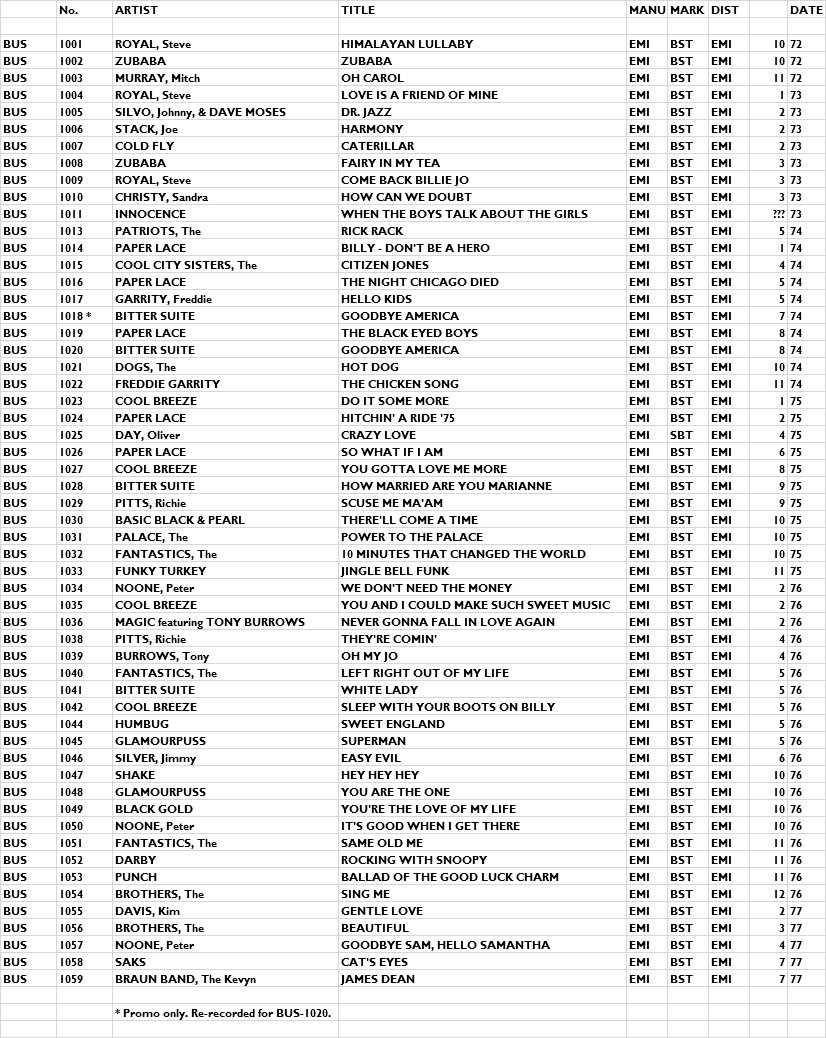


Copyright 2006 Robert Lyons.

